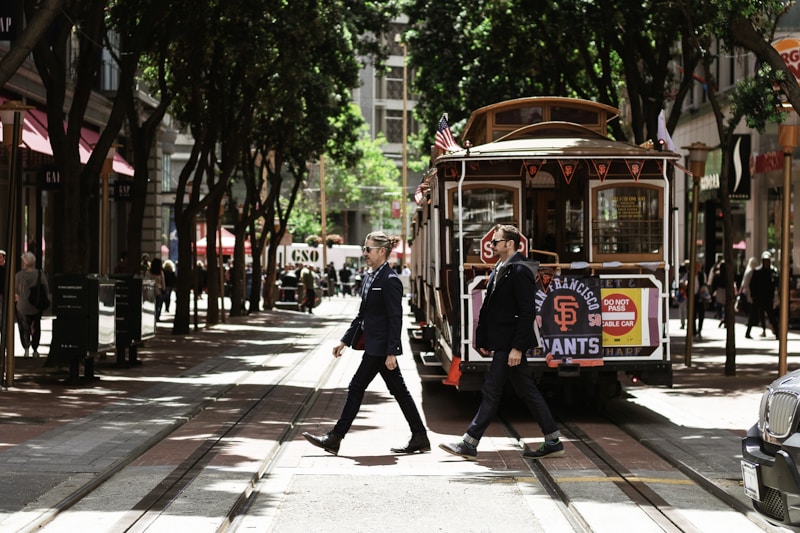Sustainable Transportation for Guests: A Comprehensive Guide
As global awareness of environmental issues rises, the hospitality industry is also evolving to meet the demand for more sustainable practices. One significant aspect that hotels and resorts need to consider is sustainable transportation for guests. This article delves into the importance of sustainable transportation, various options available for guests, and best practices for hotels to implement these solutions effectively.
Understanding Sustainable Transportation
Sustainable transportation refers to methods of transport that have a low environmental impact. This encompasses various forms of transport that reduce carbon footprint, minimize resource consumption, and enhance the overall experience for travelers. The shift towards sustainable options not only benefits the environment but also improves the reputation of hotels among eco-conscious guests.
The Importance of Sustainable Transportation in Hospitality
For many travelers, the journey is just as important as the destination. Here are a few reasons why sustainable transportation is vital in the hospitality industry:
- Environmental Responsibility: Hotels that prioritize sustainable transportation contribute to reducing greenhouse gas emissions.
- Guest Experience: Offering eco-friendly transport options enhances the guest experience and aligns with their values.
- Cost Savings: Sustainable transportation solutions can lead to long-term cost savings for hotels, especially in fuel efficiency and maintenance.
Popular Sustainable Transportation Options
There are various sustainable transportation options that hotels can consider offering their guests:
| Transportation Mode | Description | Environmental Impact |
| Electric Vehicles (EVs) | Hotels can provide guests with EVs or partner with electric ride-sharing services. | Significantly lower emissions compared to traditional fossil fuel vehicles. |
| Bicycles | Offering bicycle rentals promotes a healthy and eco-friendly way to explore the area. | No emissions, promotes fitness and local exploration. |
| Public Transport | Providing information and incentives for using local public transport systems. | Reduces the number of cars on the road, lowering overall emissions. |
| Carpooling Services | Encouraging guests to share rides to their desired destinations. | Less traffic congestion and reduced carbon footprint per person. |
Implementing Sustainable Transportation Options
For hotels looking to implement sustainable transportation options, here are a few actionable strategies:
- Partnerships: Collaborate with local electric vehicle providers or bicycle rental shops to integrate these services into your offerings.
- Incentives: Offer incentives for guests who choose sustainable transport methods. Discounts or loyalty points for using public transport or renting bikes can encourage eco-friendly choices.
- Information Dissemination: Provide pamphlets or digital content detailing sustainable transport options available in the local area.
- Internal Policies: Set internal policies favoring sustainable transport for staff as well, which can lead to a more environmentally conscious business culture.
Case Studies: Successful Implementation of Sustainable Transportation
Several hotels around the globe have successfully implemented sustainable transportation options:
- The Marriott Hotel Group: They have introduced electric shuttle services at various locations, allowing guests to travel within the city with minimal environmental impact.
- Accor Hotels: Implemented bicycle rental programs for guests, alongside partnerships with local transit authorities to facilitate seamless public transport access.
- Hilton’s Sustainability Initiatives: Hilton has developed a comprehensive guide to sustainable travel which includes tips on using local transport and off-site options for reducing their carbon footprint.
The Future of Sustainable Transportation in Hospitality
As more hotels embrace sustainable practices, the landscape of guest transportation will continue to evolve. Future trends may include more widespread use of electric fleets, autonomous eco-friendly vehicles, and integration with smart city technologies to enhance transportation efficiency.

Conclusion
In conclusion, sustainable transportation for guests is not just a trend but a necessity in today’s environmentally-conscious world. By implementing sustainable transport options, hotels can significantly contribute to reducing their environmental footprint while simultaneously improving guest satisfaction. As the hospitality industry grows more eco-friendly, investment in sustainable transportation will become a key differentiator for many establishments. Moving forward, it is crucial for hotels to consider the opportunities available and adopt strategies that will lead to a more sustainable future in travel.
Tips and Recommendations:
- Engage with guests about their travel preferences upon booking to offer personalized transportation solutions.
- Regularly update transportation offerings based on guest feedback and emerging trends in sustainability.
- Educate staff on the importance of these transportation options to promote them effectively to guests.
By taking these steps, hotels can deliver a unique, eco-friendly guest experience while leading the charge towards a more sustainable hospitality industry.